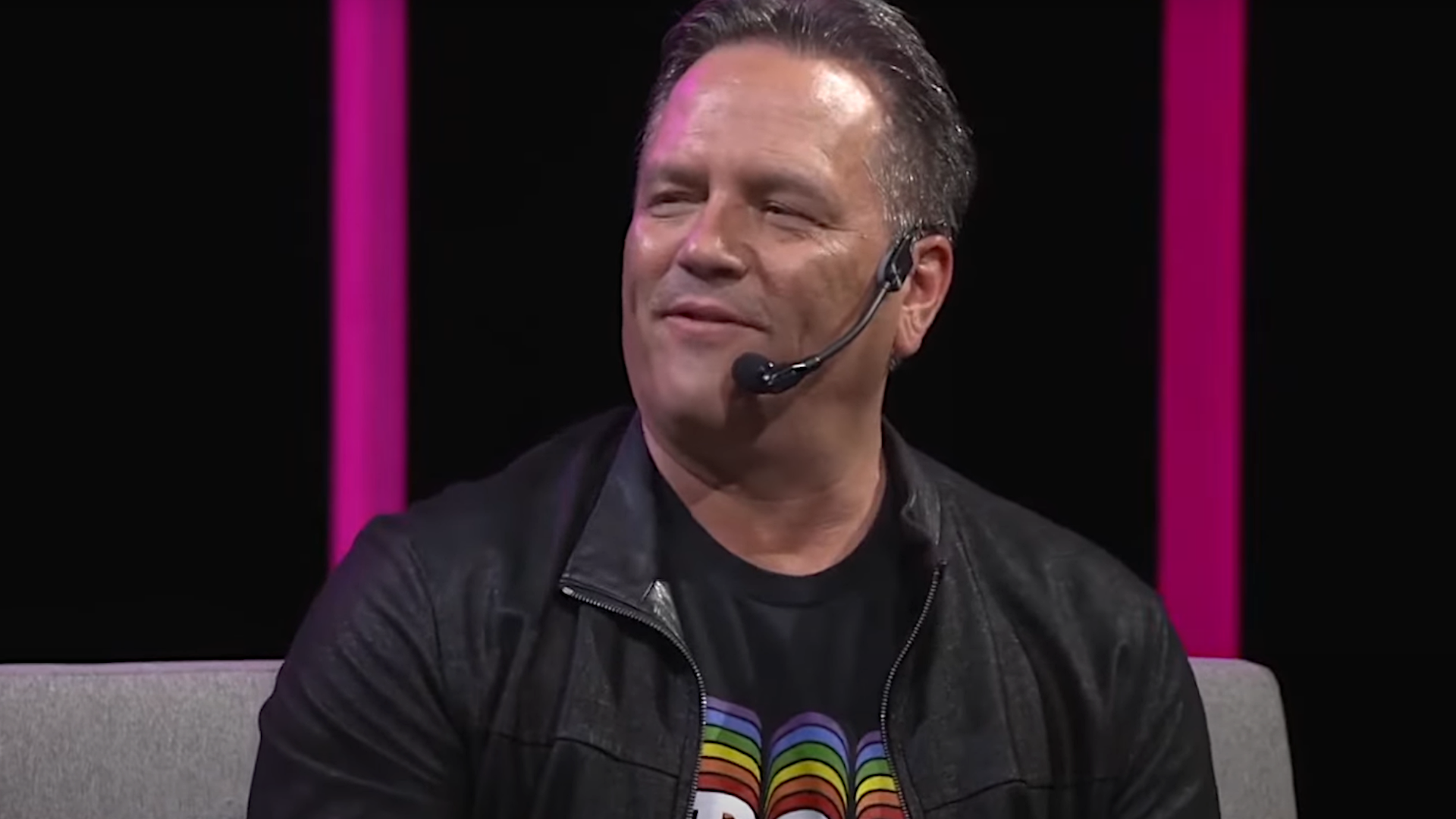Phil Spencer continues to dance around Hi Fi Rush developer Tango Gameworks' closure, says he has 'to make hard decisions that frankly are not decisions I love'
The line must continue to go up.

The Xbox Games showcase has, altogether, been a pretty good showing from Microsoft—Game Pass is going to be getting a new Doom, Gears of War is making a comeback, and Dragon Age: The Veilguard got a trailer. I mean, the tone's sort of off, and the characters are introduced like bootleg Borderlands bad guys, but I've still got my fingers crossed tight. A wonky trailer isn't an indication of much other than a slightly-scuffed marketing effort.
Despite all that, however, a spectre's lingering over the entire event: the closure of a number of studios including Arkane Austin (Dishonored, Prey) and Tango Gameworks earlier in the year. While Arkane Austin's fall might seem to logically—if cruelly—follow on from the flop that was Redfall, Tango Gameworks' shutdown seemed to catch many off-guard.
Hi-Fi Rush was a success by almost every metric, something heads at Microsoft itself have even stated themselves. The hard and altogether baffling pill that individual devs have had to swallow is that, somehow, making a good game that sells well "will no longer keep you safe in this industry".
It doesn't help that said closures followed a massive $68.7 billion deal to buy Activision Blizzard (which itself oversaw sweeping layoffs at the company). It's easy to put red strings on a corkboard and believe that studios like Arkane Austin and Tango Gameworks are simply footing the bill for bigger, juicer brand names.
Fortunately, Xbox has had plenty of interviews to explain its rationale, including maybe some insight into the departure of Shinji Mikami before Hi-Fi Rush's release. Insight that could, potentially, explain that there were reasons to close the studio unrelated to profit. Unfortunately, absolutely no-one high up seems to be prepared to give an actual answer.
Last month, president of Xbox Sarah Bond rambled on about the issue for a bit, and now it's CEO of Microsoft Gaming Phil Spencer's turn to say basically nothing. During a talk with IGN, interviewer Ryan McCaffrey provides Spencer an opportunity to lay the conversation to rest.
"The closure of any team is hard on, obviously, the individuals there … As you said I haven't been talking publicly about this, because right now it's a time for us to focus on the team and the individuals," Spencer says, I can only assume, about the individuals he had recently put out of a job. "It's obviously a decision that's very hard on them, and I wanna make sure (through severance and other things) that we're doing the right thing for the individuals on the team."
The biggest gaming news, reviews and hardware deals
Keep up to date with the most important stories and the best deals, as picked by the PC Gamer team.
Alright, fair enough. These layoffs are frustrating, but Microsoft wants to make sure it's providing severance packages and that they're not just sent off with all their dreams in a cardboard box—great! Also: a legal requirement. As to the actual why, however, Spencer doesn't really have an answer.
"It's not about my PR, it's not about Xbox PR, it's about those teams," Spencer says, vaguely gesturing in the direction of meaning. "In the end, I've said over and over I have to run a sustainable business", which is a justification he's rolled out before, "inside the company and grow, and that means sometimes I have to make hard decisions that frankly are not decisions I love, but decisions that somebody needs to go make."
You might have noticed that we're no closer to actually understanding why Tango Gameworks and Arkane Austin had to go—obviously the business can't divulge company secrets, but there's not even a morsel of context provided beyond: Hey, we love the teams, we love the games, we love the individuals. That's why we had to shut them down.
Listen, being the CEO of a major gaming company sounds like a stressful job—as does being in the public eye when you have to be the bad guy—but also, Phil Spencer makes millions of dollars a year. You'd think he, or anyone else senior at the company, could come to one of these interviews prepped with an actual answer to one of their biggest recent controversies.
Still, Spencer says: "We will continue to go forward, we will continue to invest in what we're trying to go do in Xbox, and build the best business that we can, which ensures that we can continue to do shows like the ones we just did." So, to summarise, Tango Gameworks had to go because of "business"—and that's all you'll get. Cue some very confusing applause from the audience. Please clap and look towards the future until the next time this happens.

Harvey's history with games started when he first begged his parents for a World of Warcraft subscription aged 12, though he's since been cursed with Final Fantasy 14-brain and a huge crush on G'raha Tia. He made his start as a freelancer, writing for websites like Techradar, The Escapist, Dicebreaker, The Gamer, Into the Spine—and of course, PC Gamer. He'll sink his teeth into anything that looks interesting, though he has a soft spot for RPGs, soulslikes, roguelikes, deckbuilders, MMOs, and weird indie titles. He also plays a shelf load of TTRPGs in his offline time. Don't ask him what his favourite system is, he has too many.

